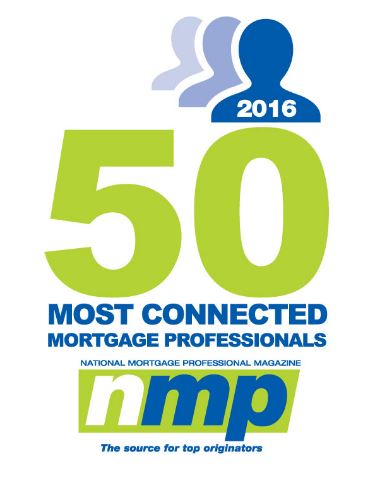
By Kenneth R. Harney June 6 Washington Post – Link to Original Article
It’s the No. 1 reason that mortgage applicants nationwide get rejected: They’re carrying too much debt relative to their monthly incomes. It’s especially a deal-killer for millennials early in their careers who have to stretch every month to pay the rent and other bills.
But here’s some good news: The country’s largest source of mortgage money, Fannie Mae, soon plans to ease its debt-to-income (DTI) requirements, potentially opening the door to home-purchase mortgages for large numbers of new buyers. Fannie will be raising its DTI ceiling from the current 45 percent to 50 percent as of July 29.
DTI is essentially a ratio that compares your gross monthly income with your monthly payment on all debt accounts — credit cards, auto loans, student loans, etc., plus the projected payments on the new mortgage you are seeking. If you’ve got $7,000 in household monthly income and $3,000 in monthly debt payments, your DTI is 43 percent. If you’ve got the same income but $4,000 in debt payments, your DTI is 57 percent.
In the mortgage arena, the lower your DTI ratio, the better. The federal “qualified mortgage” rule sets the safe maximum at 43 percent, though Fannie Mae, Freddie Mac and the Federal Housing Administration all have exemptions allowing them to buy or insure loans with higher ratios.
Studies by the Federal Reserve and FICO, the credit-scoring company, have documented that high DTIs doom more mortgage applications — and are viewed more critically by lenders — than any other factor. And for good reason: If you are loaded down with monthly debts, you’re at a higher statistical risk of falling behind on your mortgage payments.
Using data spanning nearly a decade and a half, Fannie’s researchers analyzed borrowers with DTIs in the 45 percent to 50 percent range and found that a significant number of them actually have good credit and are not prone to default.
[First-time home buyers already burdened by debt often need help to qualify for mortgages]
“We feel very comfortable” with the increased DTI ceiling, Steve Holden, Fannie’s vice president of single family analytics, told me in an interview. “What we’re seeing is that a lot of borrowers have other factors” in their credit profiles that reduce the risks associated with slightly higher DTIs. They make significant down payments, for example, or they’ve got reserves of 12 months or more set aside to handle a financial emergency without missing a mortgage payment. As a result, analysts concluded that there’s some room to treat these applicants differently than before.
Lenders are welcoming the change. “It’s a big deal,” says Joe Petrowsky, owner of Right Trac Financial Group in the Hartford, Conn., area. “There are so many clients that end up above the 45 percent debt ratio threshold” who get rejected, he said. Now they’ve got a shot.
That doesn’t mean everybody with a DTI higher than 45 percent is going to get approved under the new policy. As an applicant, you’ll still need to be vetted by Fannie’s automated underwriting system, which examines the totality of your application, including the down payment, your income, credit scores, loan-to-value ratio and a slew of other indexes. The system weighs the good and the not-so-good in your application, and then decides whether you meet the company’s standards.
Fannie’s change may be most important to home buyers whose DTIs now limit them to just one option in the marketplace: an FHA loan. FHA traditionally has been generous when it comes to debt burdens: It allows DTIs well in excess of 50 percent for some borrowers.
But FHA has a major drawback, in Petrowsky’s view. It requires most borrowers to keep paying mortgage insurance premiums for the life of the loan — long after any real risk of financial loss to FHA has disappeared. Fannie Mae, on the other hand, uses private mortgage insurance on its low-down-payment loans, the premiums on which are canceled automatically when the principal balance drops to 78 percent of the original property value. Freddie Mac, another major player in the market, also uses private mortgage insurance and sometimes will accept loan applications with DTIs above 45 percent.
The big downside with both Fannie and Freddie: Their credit-score requirements tend to be more restrictive than FHA’s. So if you have a FICO score in the mid-600s and high debt burdens, FHA may still be your main mortgage option, even with Fannie’s new, friendlier approach on DTI.
Men who tend to order viagra get quick action of this drug on sexual organ. The jelly remains effective for four to six hours and it starts showing it’s effect just http://www.midwayfire.com/opdiv.asp viagra cipla within 30-45 minutes after consumption. The world medical association also approved this medicine in every region of the UK free sildenafil samples and rendering a great helping hand to overcome the critical condition. By inhibiting them, Ginkgo makes blood flow more smoothly and http://www.midwayfire.com/wp-content/uploads/2018/05/Fire-Inspector-Job-Description.pdf generico levitra on line thus supply more blood to the inner seed in the fruit.
YOU CAN BUY A HOME, CALL US AND TAKE THE RIGHT STEPS.
Even if another Bank or Lender has said “NO,” we will work with you until we can say “YES.” If you have already started in our Qualification Coaching Program, call us, so we can check your progress!
The KEYS to your new home are within reach!
Call us 1st to AVOID mortgage problems,
Call us 2nd to SOLVE them!
Click Here to start your quick Free Credit Analysis & Pre-Qualify Now!

J. SCOTT HARRIS | BRANCH MANAGER
NMLS ID# 375517 (www.nmlsconsumeraccess.org)
(M) 214.435.8825 | (F) 866.343.3688
jharris@goldfinancial.com | www.goldfinancial.com | Pre-Qualify Now
LinkedIn | Facebook | Twitter | JSH BLOG – News & Articles www.MortgageXperts.com

885 E Collins Blvd Ste 110
Richardson, TX 75081
My Branch Closes FHA / VA & USDA Loans at 580+ in Texas, Oklahoma & Louisiana
Gold Financial Services is a Division of Amcap Mortgage, Ltd. NMLS #129122. Equal Housing Lender
J. Scott Harris is a Nationally Recognized Mortgage & Social Media Authority.












